Screened at Rapid Lion International Film Festival, the wonderful feature length documentary, 1001 Days purports to present through a series of intimate and at times, uncomfortable conversations, a searing, emotional snapshot of motherhood in Alexandra, a township in South Africa during the crucial first three years of a baby's life.
Interview given online.
Q. 1001 Days is a powerful film, what was the journey that brought the team together to make it?
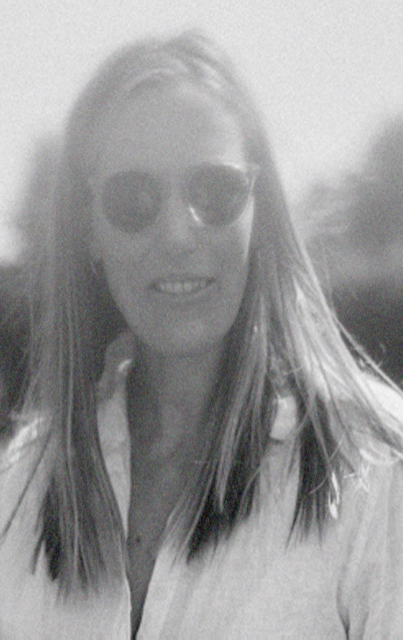 Rose Palmer, producer.
Rose Palmer, producer.
We came across the story when I was studying for a PhD focusing on supporting mother and child relationships in low- and middle-income countries. I was studying at UCL and actually met Chloe at a kind of speed-dating event that matched film-makers with researchers. We were working on a film idea for another project, but then stumbled across Ububele, the charity where our characters work.
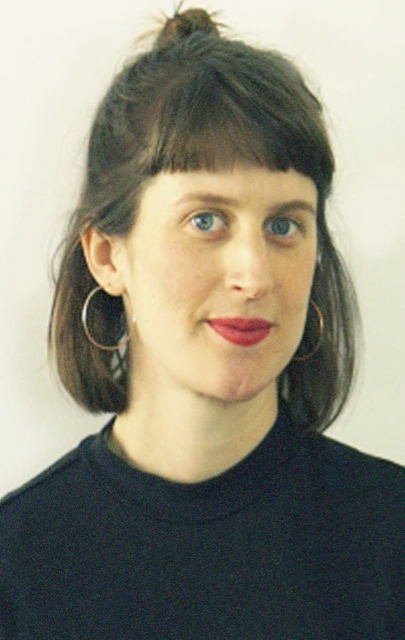 Chloe White, co-director.
Chloe White, co-director.
We did a pilot trip out there and saw how important it was to tell this story. We soon realised we needed someone from South Africa on the team, who really understood the context and the unique challenges of women living in Alexandra. So we asked Kethiwe to join our team; she has over 30 years experience in the film industry, has lived in Johannesburg for most of her life and her own mother lived in Alexandra for a period of time.
Q. Was it a deliberate choice to have Whalebone Films, a British production company involved?
![]()
The film idea was born out of my PhD studies and Chloe runs Whalebone Films. So when we began collaborating that’s when Whalebone Films became involved.
Q. Was it important to have an international objective eye?
![]()
No this wasn’t important at all, the project was just born that way. It didn’t feel right that we were outsiders making the film. We needed an insider's perspective, and that’s why we asked Kethiwe to join us and why we chose a South African editor, Catherine Meyburgh, who’s also from Joburg. We all bring different skills to the table and have made a powerful team.
Screened at Rapid Lion International Film Festival, the wonderful feature length documentary, 1001 Days purports to present through a series of intimate and at times, uncomfortable conversations, a searing, emotional snapshot of motherhood in Alexandra, a township in South Africa during the crucial first three years of a baby's life.
Interview given online.
Q. 1001 Days is a powerful film, what was the journey that brought the team together to make it?
 Rose Palmer, producer.
Rose Palmer, producer.
We came across the story when I was studying for a PhD focusing on supporting mother and child relationships in low- and middle-income countries. I was studying at UCL and actually met Chloe at a kind of speed-dating event that matched film-makers with researchers. We were working on a film idea for another project, but then stumbled across Ububele, the charity where our characters work.
 Chloe White, co-director.
Chloe White, co-director.
We did a pilot trip out there and saw how important it was to tell this story. We soon realised we needed someone from South Africa on the team, who really understood the context and the unique challenges of women living in Alexandra. So we asked Kethiwe to join our team; she has over 30 years experience in the film industry, has lived in Johannesburg for most of her life and her own mother lived in Alexandra for a period of time.
Q. Was it a deliberate choice to have Whalebone Films, a British production company involved?
![]()
The film idea was born out of my PhD studies and Chloe runs Whalebone Films. So when we began collaborating that’s when Whalebone Films became involved.
Q. Was it important to have an international objective eye?
![]()
No this wasn’t important at all, the project was just born that way. It didn’t feel right that we were outsiders making the film. We needed an insider's perspective, and that’s why we asked Kethiwe to join us and why we chose a South African editor, Catherine Meyburgh, who’s also from Joburg. We all bring different skills to the table and have made a powerful team.
Page 2
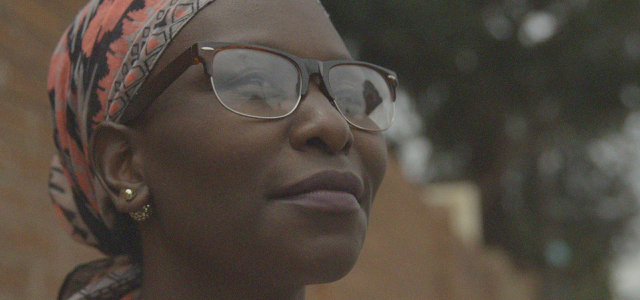
Q. I can appreciate there must have been hundreds of hours of filmed footage, was there any conflict in choices of what goes in and what stays out?
![]()
When we first started making the film, we just followed the home visitors as they went about their days visiting mums. As the film progressed we started to become more deliberate in what we chose to film, following up on mums where we thought the visits were particularly powerful, for example.
We had a lot of footage and in many different languages. The home visitors helped us understand the context of each visit, and we had some of it translated at the time. We worked with an amazing editor, Catherine Meyburgh, who advised on what else we should get translated. Our first cut was way too long and we had to whittle it down by removing scenes, some of which we loved. So there wasn’t necessarily conflict but we were sad to lose some moments.
As the edit progressed we realised that we wanted to strip the film right back to just these intimate, raw conversations that are so powerful. So it’s got an ethnographic style, and is very simple in its format. We’ve tried to remove any unnecessary distractions and keep it mainly between the four walls of the mum's shacks, and choosing not to have music, only natural sound, for example. That also meant that we cut out some scenes that we liked and that were quite powerful; for example, when Thandiwe and Zanele visited Rome to present their work at an international mental health conference. We can hopefully use this in some extra material.
Q. While in Alexandra Township, did you encounter any opposition to you filming? And since completion, has the film screened there?
![]()
Generally we had a good experience shooting in Alex. We were welcomed into the homes of the mothers and loved eating at Good Hope restaurant.
Rapid Lion Film Festival was the World Premiere so it has only been screened there so far. We are currently submitting to other festivals and after that we’ll launch our impact campaign, which will involve running screenings in Alexandra and also in other townships in South Africa. We hope to collaborate with Sunshine Cinema, Africa’s first solar powered cinema network who take films into communities that rarely go to the cinema.
Page 3
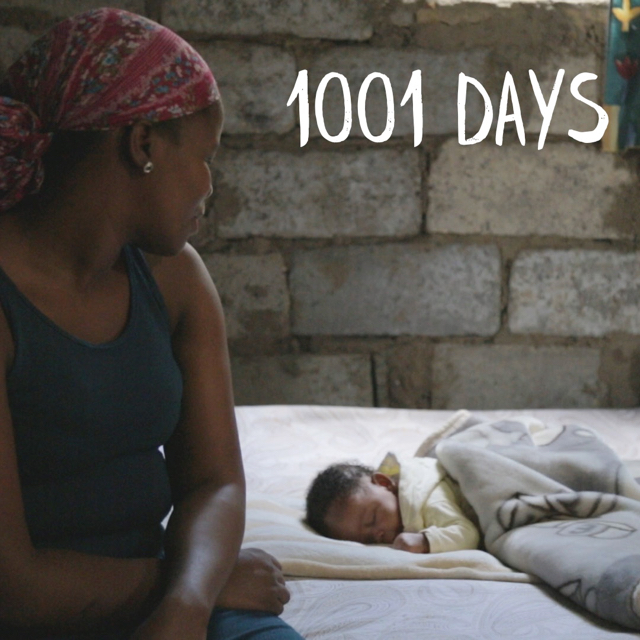
Q. During production, did you get a sense you were at the sharp end of making something quite important?
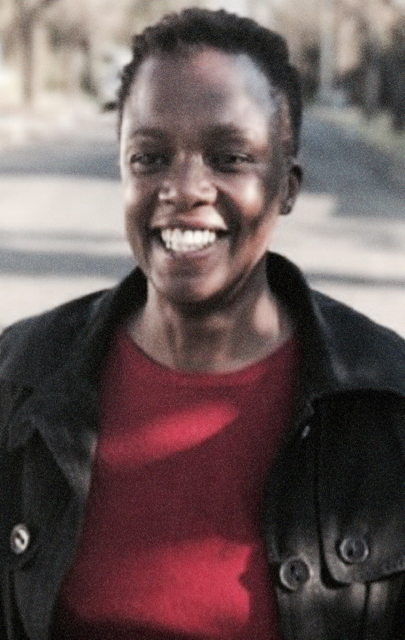 Kethiwe Ngcobo, co-director.
Kethiwe Ngcobo, co-director.
We did realise quite early on that our film could provide a unique window into the challenges that women face and also the value of supporting them and their new babies. Motherhood is so important but it is often overlooked as something that just happens; that it’s natural or instinctive. But becoming and being a mother is hard, especially if you’re living in extremely challenging conditions. We were fortunate that these mothers allowed us in on very intimate moments. Without their permission we wouldn't have been able to make something so evocative and emotional.
![]()
We believe this is the first time that a home visiting project has been followed for a documentary. We hope that it can be used as a tool to demonstrate the importance of supporting women and infants during those first 1001 days (from conception to two years), which is the most critical time in any human’s life. It’s when the foundations of their mind are being put in place and relationships during this time affect the brain in ways that have lifelong consequences.
Q. One young woman in the film talked about the collapse of community, do you think this is a result of the modernisation of society, that in many ways, counters the tribal aspects of family life?
![]()
South Africa today is a fast-moving, fast-changing place. In the last thirty years it has changed enormously. Although the film actually points out that the change hasn't reached all aspects of South African life. Poor people have not benefited enough from democracy.
The apartheid state was the key architect in the disruption of family life. Families were separated; many men lived in cities while their families were in Rural South Africa. So apartheid was not an ideal place for family and community. Despite the destructive forces of apartheid, community did thrive and that could be because of how resistance and struggle manifested themselves in building a unified voice against oppression.
Since democracy, communities have changed, several middle-income people have moved into the suburbs. New migrants from rural areas and countries in the region have changed the close knit nature of the township. The poorest people are the heartbeat of places like Alex. They have to work harder to make ends meet. And urbanization does change the fabric of people's relationships. The competing interests in this modern society and the impacts of globalisation mean less time for family, longer working hours, less pay, less connection time and more isolation. This community is no different. It's not about a romantisiced past. It's just change has been difficult and will continue to take a strain on interconnection.
Q. The film is ostensibly about the women of Alexandra, but during filming, did the women get a chance to speak to any of the fathers about the film?
![]()
Men were conspicuously absent during our filming. We can recall very few visits where a father was there at home and supporting the mother. All but one of the home visitors (Zanele) are single mothers too.
![]()
Our past has so much to do with our present. The migrant labour system dealt a bitter blow on family structure. Apartheid made millions live without fathers. So many families were separated and many young men have not had fathers to show them an example of what fathering is. That tradition of separation hasn't changed much since the beginning of democracy.
Women, whether urban or rural, have learnt to raise their children without fathers. Marriage is in decline in South Africa and single income households are the norm. But that doesn't mean there are no healthy relationships, it's just that it's harder to find them. Perhaps there is a need for programmes focusing on male responsibility, but I doubt that we will solve this problem in a generation. It's what the old system did.
Page 4
Q. Is there a need for a national programme on male parenting and male responsibility?
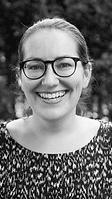 Nicki Dawson, Parent-Infant Programme Manager, Ububele.
Nicki Dawson, Parent-Infant Programme Manager, Ububele.
There is definitely a need for a national programme focused on male parenting and responsibility. There are already some programmes in existence in the country of filming - such as the Men Care programme run by Sonke Gender Justice. Ububele, the NGO where the characters work, are looking into developing this - and ironing out issues of how and where to access fathers, and what programmes will be well received by men. There are issues to overcome, such as the stigma around help-seeking for males, cultural norms around gendered parenting roles, and that the majority of trained individuals in the parenting space are female, and more male practitioners would be needed - as men appear to be more willing to engage with male practitioners. And there is also the issue of safety for female practitioners.
Q. How does a developing society engender its male population to understand the importance of a child's development in its early days, particularly the 1001 days as suggested here?
![]()
Apartheid tore away the experience of being a father or of being fathered. Many males did not know how to father as few of them had role models. It’s a problem that our society is going to have to deal with for generations.
![]()
Much advocacy work is needed to spread the word to the general population about the importance of early experiences for lifelong developmental outcomes for children. And particularly the role of males. There seem to be pervasive common beliefs that men don't have much of a role in early parenting, but research shows that involved, caring fathers can be a huge protective factor for children, as can protecting infants from exposure to parental conflict and violence - and men have a huge role to play there.
Q. Perhaps government policymakers should think about introducing programs such as the “Father Baby” programmes we find in some prison environments which have proven to be successful in teaching men to partake in the upbringing of their children? What do you think?
![]()
We definitely need investment in more Father-Baby programmes. This would reap huge benefits. In South Africa in particular it would ultimately reduce levels of gender-based violence in future generations, a huge problem South Africa is facing. But investing in father-baby programmes would have benefit for mental health, physical health, social development and cognitive development of children.
![]()
The problem is systemic and there are no easy solutions. Patriarchy and the migrant labour system have a lot to answer for! But fostering positive father involvement in children’s lives would no doubt be a positive thing.
Q. With perhaps a more concentrated effort in the hitherto under-invested townships?
![]()
Yes. When families face increased stress - socioeconomic stress and threats to safety - their parenting is impacted. Many of South Africa's most financially stressed families are living in South Africa's townships, although not exclusively so, but targeting interventions to socioeconomically stressed communities is of utmost importance.
![]()
Townships need investment but the bigger issue is that we need to address the inequality in South Africa more generally and the way the economy is structured makes it difficult for these changes to happen. South Africa is the most unequal country in the world. It’s estimated that 10% of South Africans own 90% of the wealth. And there is an obvious racial bias; of those living in poverty, 9 out of 10 are black.
Q. Funding is of course an issue with social programmes but as proven in other countries, money paid today will surely be reclaimed in abundance tomorrow with a healthy, stable society. What do you think?
![]()
This is definitely true. Investing in early childhood has been proven to reduce the cost burden on policing, social services, mental health services and even health care services. We now know that early exposure to stress affects your immune system and places you at greater risk for cardiovascular disease and cancer, as well as other illnesses. By investing in early parenting we can hugely reduce the financial burden on the state in the long term.
![]()
Nelson Mandela said: “There can be no keener revelation of a society's soul than the way in which it treats its children.” And yet, despite evidence showing that investment in the mental health and wellbeing of babies, infants and children has benefits not just to them, but also has long-term benefits to society, they are often still overlooked. Not just in South Africa, but in countries around the world.
![]()
Those in power are just too far removed from the experiences of families. They don’t face loadshedding, their children go to private schools, they go to malls far away from poor areas. We really hope that our film can be used as a campaigning tool so they can understand the realities that mothers and infants are facing. And for them to understand that our future is literally at stake.
For further statistical information:
https://www.statssa.gov.za/publications/P0307/P03072021.pdf
https://www.statssa.gov.za/publications/P0318/P03182021.pdf
1001 DAYS premiered at the Rapid Lion South African International Film Festival in March 2023. Contact: Whalebone Films

